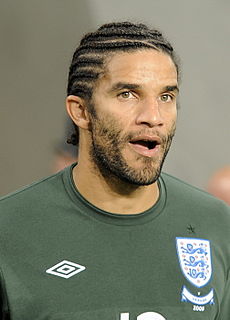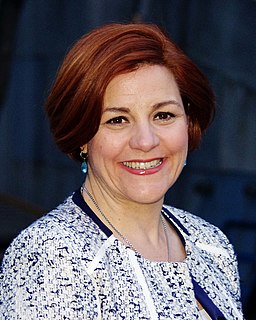A Quote by Wangechi Mutu
We became Homo sapiens not that long ago, from the scientific perspective, and we've retained a lot of our beast nature. We've done all these amazing things in terms of our knowledge base and technology, and now we're flying around and using the internet. But we're still very animalistic. So, I think about hierarchies. I think about evolution. I think about how we stack up, how we sit on top of each other. How we pray that we know what we're up to.
Related Quotes
I think that our work and our music stands on its own without this knowledge about our identity around it. But I also think that we very consciously decided not to hold back that part of ourselves, but to be very vocal about who we are, kind of what experiences we've had in life, and how we identify.
To spend any time with someone who is among the top five film composers of the last 50 years is pure gold dust. I mean, not necessarily stylistically, because everyone is different in what their music sounds like, but the approach and how to look at a film, how to think about a film, how to decide what you want to do, how to think about characters, how to think about art, how to think about narrative, how to liaise with producers, how to liaise with directors.
I'll think about something else. I'll just sit quietly. If I could sit still. If I could sit still, maybe I could read. Oh, all the books are about people who love each other, truly and sweetly. What do they want to write about that for? Don't they know it isn't true? Don't they know it's a lie, it's a God-damned lie? What do they have to tell about that for, when they know how it hurts?
My wife and I replaced our nest with one on wheels. The RV became our new home. It's remarkable how homey it became and how quickly. It's obviously very condensed, and we do travel light, but when you think about what you really need, we have the basics - a bed, a bathroom, a kitchen, and a table to sit at to eat and write.
I was thinking about framing, and how so much of what we think about our lives and our personal histories revolves around how we frame it. The lens we see it through, or the way we tell our own stories. We mythologize ourselves. So I was thinking about Persephone's story, and how different it would be if you told it only from the perspective of Hades. Same story, but it would probably be unrecognizable. Demeter's would be about loss and devastation. Hades's would be about love.
I had a lot of fantasies about being an architect when I was young, and I think I still do. On a visceral level, I'm very intellectually and emotionally attracted to acknowledging how space functions in our lives, both in terms of pleasure and in terms of control, and in terms of all those factors that form a life. I'm also very anxious and maybe repulsed by how superficial that whole dialogue can become.
You know what I was thinking about on my way home? How different my life would be if you’d made that gash a little deeper. Or how different yours would be if I’d vaulted myself off a roof nine years ago. Do you ever think about things like that? Like, if either you or I wouldn’t have made it, where would the other one be right now? It was something I thought about all the time: how death changes every remaining moment for those still living.
Communication requires cultural context, and technology facilitates our ability to cross-reference ideas over time. Charles Moore were saying: Enough with the sterile, context-less architecture. Enough with the functional-minded frame of operation. How about a little mess? How about a little, let's say, syntax? A little quotation using history? How about some other meanings or symbols? I think that's the only logical reaction when you have to thoughtfully manage the communication of a lot of information.
We have come to look at our planet as a resource for our species, which is funny when you think that the planet has been around for about five billion years, and Homo sapiens for perhaps one hundred thousand. We have acquired an arrogance about ourselves that I find frightening. We have come to feel that we are so far apart from the rest of nature that we have but to command.
I try to not think too much about how stuff gets seen as it's being done by a woman. Because if you think about it, then you end up thinking about how you're acting, and if you are thinking about how you're acting, then you are preoccupied and you're going to end up being insincere. You're kind of not present.







































